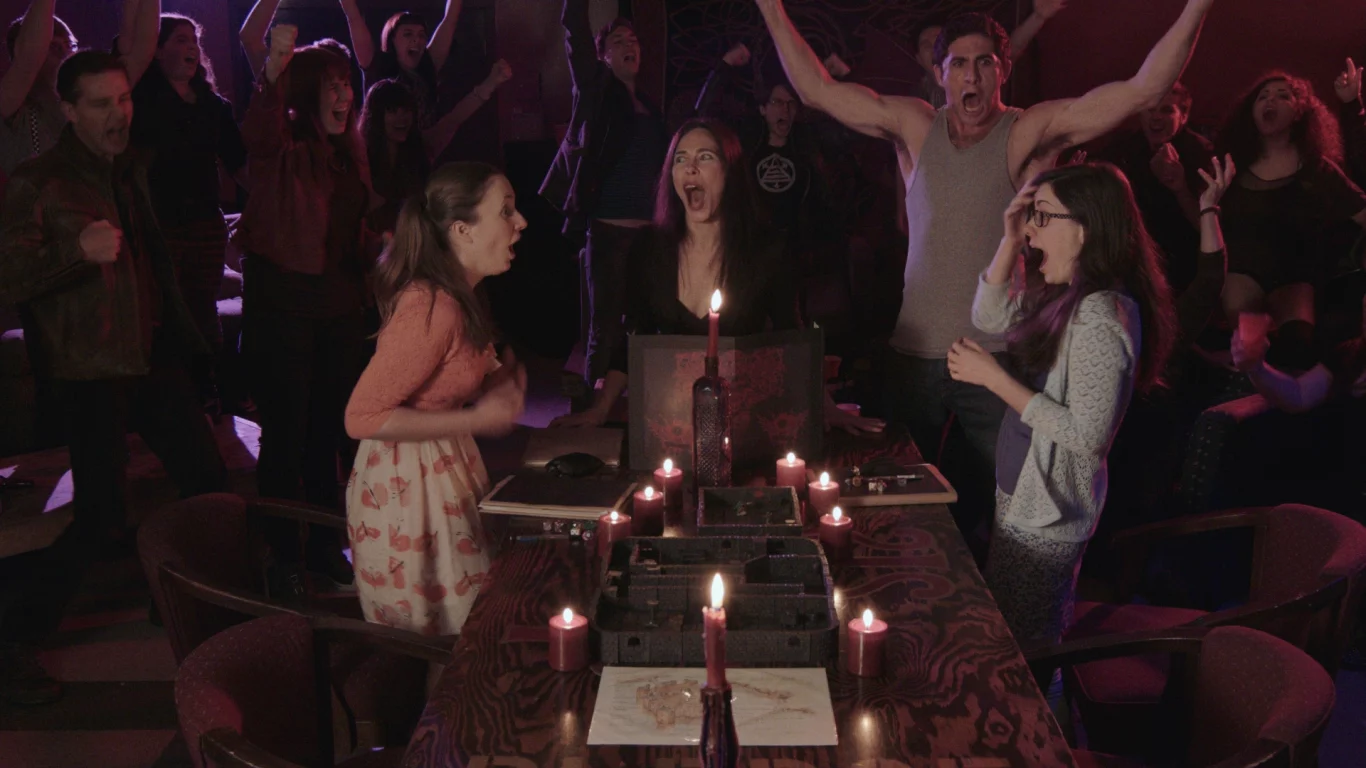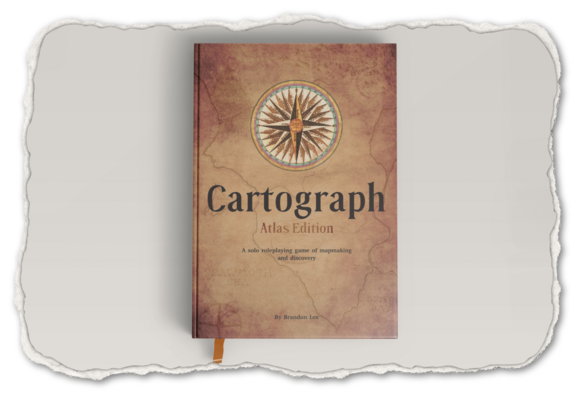We may earn money or products from the companies mentioned in this post.
In preparing to celebrate the QAGS 20th Anniversary, we’re going to be digging through a lot of old files, so I’m occasionally going to post material from older versions of The Death Cookie. Since we’re rushing to finish the first round of Cinemechanix editing this week, now seems like a good time to start. Mal’s Story also fits well thematically with the unexpected but wildly successful Qerth revival that The Comprehensive Soldier seems to have kicked off. Mal’s Story was originally posted to the Death Cookie in September of 2001 (based on the filename of the cached version found on the Wayback Machine). I’ve made a few minor rewrites and corrections to the original text.
Malac the Elder was one of the greatest treasure hunters who ever lived. He crept into crypts, sneaked into ancient wizard’s towers, and ventured into ancient tombs in pursuit of gemstones, magical artifacts, and gold. He brushed shoulders with some of the greatest heroes of his time, and was awarded titles for bravery and cunning by royalty, civic leaders, and even the church. Unfortunately, Malac the elder was a gambler. Many of the treasures and awards he earned were lost in games of chance and contests of skill. In the end, he retired with enough money to buy an inn in a sleepy crossroads town, where he occasionally dreamed of what his life would be like had he been wiser with his loot.
I guess I should mention that Malac the Elder wasn’t actually a character I played in an RPG. You see, eventually, Malac the Elder married a nice girl from the village and had a son, appropriately named Malac the Younger. Like many parents, Malac the Elder dreamed that his son would follow in his footsteps and also become one of the greatest treasure hunters who ever lived. To this end, Malac the Elder started his son’s training at a very young age. My character was the tormented Malac the Younger.
Malac the Younger’s life was not an easy one. In addition to his chores as innkeeper’s son, young Mal had to always be prepared for one of his father’s surprise “lessons.” Before he stepped out of bed in the morning, he had to make sure his father hadn’t booby-trapped the floor. When he went to the stream for water, he had to be aware that at any moment one of the stable boys could ambush him. Sometimes, if he wanted to eat, he had to free his lunch from locked chests (without benefit of a key, of course) or steal the food from his father’s bedside table as Malac the Elder slept. Then he could only hope that his father hadn’t poisoned the food “just a little, to help build up your resistance.” Malac the Elder strongly believed that pain and suffering were good teachers.
The classroom-style lessons were more to Malac’s the Younger’s liking. Some were exciting and offered useful information, like how to swear in Orcish. Others, like how to defeat a lesser crypt thing, were less immediately relevant, but at least offered no chance of injury (though Mal often suspected that, should his father ever come into possession of a lesser crypt thing, it would be loosed into his bedroom as he slept). Even these, however, never truly piqued young Mal’s interest. In fact, he wasn’t really sure he wanted to be an adventurer. He always thought he’d make a good Cheesemaker. Mal liked cheese.
One day, some of Mal’s friends decided to leave town to seek their fortunes. The life of an adventurer seemed awfully dangerous to Mal, but then again so did staying at home with Mal the Elder. At the very least, Mal’s friends probably wouldn’t force him to practice sneaking for two hours every day. He decided to join them on their adventure. Malac the Elder wasn’t sure that his son was ready to go out into the world, but ultimately gave his blessing, along with his old lockpicks and his favorite trusty dagger. Mal and his friends set off for the city to find their destiny.
Thus began my experimentation with zero level D&D characters. The first night out, we set up our camp and tried to get some sleep, despite the strange howls of distant creatures. Then we saw the eyes. Glinting in the firelight, some distance from our camp were dozens, maybe even hundreds of eyes. We huddled together near the fire, weapons close at hand, and hoped that whatever it was didn’t kill us. Eventually the eyes disappeared, but nobody got much sleep that night.
All of the players knew that we were probably looking at a community of groundhogs, but we were all so completely in character as young, inexperienced adventurers–and the GM was so great in his eerie description–that nobody even mentioned the possibility until the game was over. Over the next few sessions we made it to the big city, where our characters were even more out of their league. We were bilked out of our money, got into trouble for doing or saying the wrong thing to the wrong person in the wrong place at the wrong time, and otherwise were constantly taken advantage of. And we loved every minute of it.
Sadly, scheduling conflicts ended our very low-level game after only a few sessions, but it was one of those games that stuck with me for years. We knew that, by the very nature of fantasy RPGs, our band of naive and frightened kids would one day become great heroes, so we enjoyed our innocence while it lasted. Our characters with their armor and weapons were more like a five-year old wearing his father’s shoes than the self-assured, worldly first-level characters you usually meet in a D&D game. The fact that we were playing 0-level characters wasn’t the reason for this, but I think it’s what got us into the mindset.
Playing inexperienced characters creates a much more believable group dynamic. When you start the characters off before their exciting adventures really begin, you end up with more detailed and interesting backgrounds, in part because you’re actually role-playing at least some of it. It also gives the group plenty of reasons to stick together, since they started out together and have shared so many formative experiences. I’m sure that, had Malac’s adventures continued, he and his companions would have spent their dying breaths arguing about who was or was not afraid of the groundhogs that night.
Next time you get tired of toppling titans and carousing with demigods, try playing someone who has no clue what he’s getting into. Instead of playing your warrior as a cocky young thug, why not consider the fact that he’s never truly seen the horrors of battle? Maybe he blows chunks after he kills his first orc. Maybe his first kill shows him the ease with which life can be snuffed out, or makes him consider the moral implications of wholesale genocide. In any case, playing starting-out characters as true novices can put a new spin any game. And it can be a lot of fun.
You know what else is fun? Giving me money!






